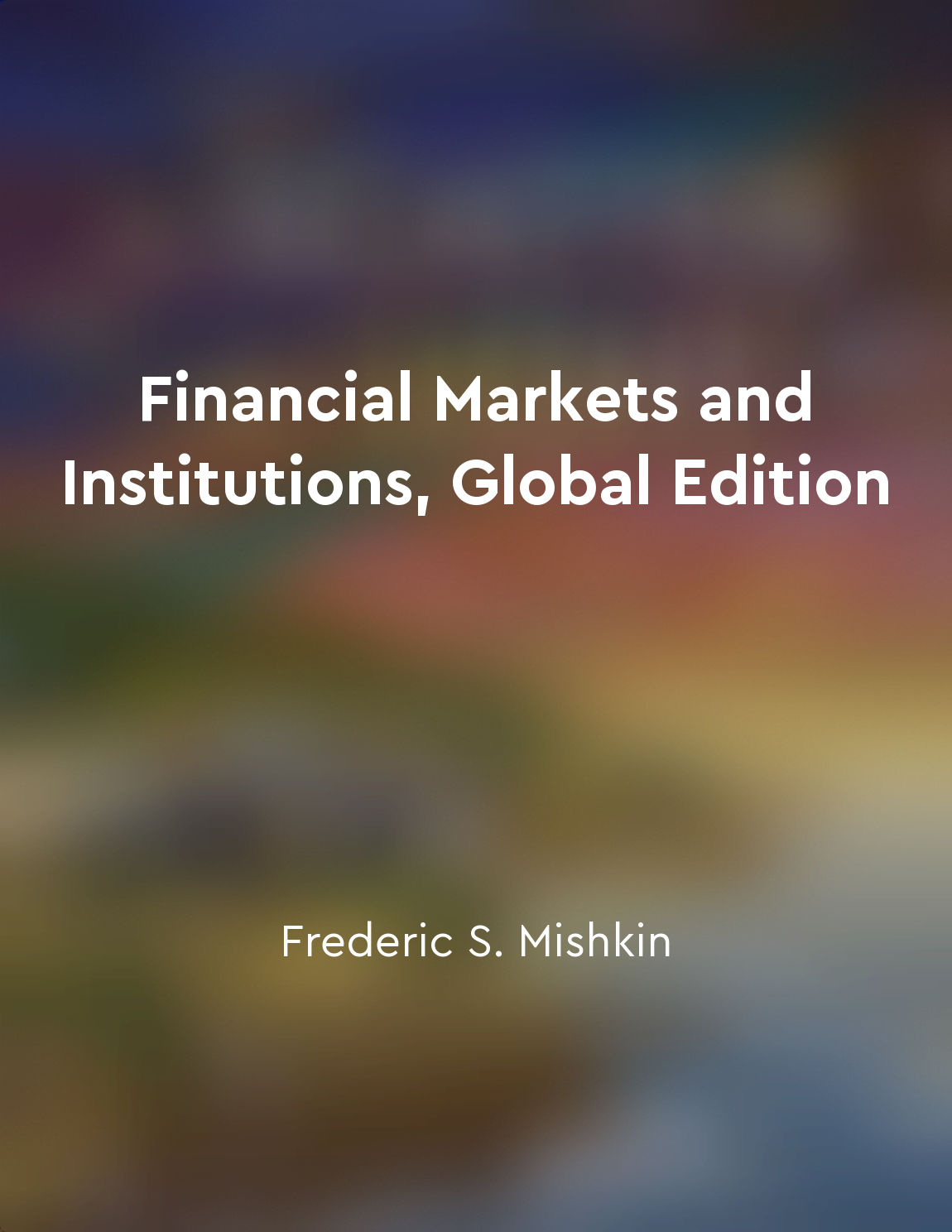Policy responses aim to mitigate the adverse effects of financial disruptions from "summary" of Financial Markets and Institutions, Global Edition by Frederic S. Mishkin,Stanley G. Eakins
When financial disruptions occur, policymakers typically respond by implementing various measures designed to lessen the negative impacts on the economy. These policy responses are aimed at stabilizing financial markets, restoring investor confidence, and promoting economic growth. In times of crisis, such as during a recession or a financial meltdown, policymakers may employ both monetary and fiscal policy tools to address the root causes of the disruption and prevent it from spiraling out of control. Monetary policy measures, such as interest rate adjustments and open market operations, are often used to influence the money supply and borrowing costs in the economy. By lowering interest rates, central banks can encourage borrowing and investment, stimulate consumer spending, and boost overall economic activity. Conversely...Similar Posts
Government intervention can distort market efficiency
When the government intervenes in a market, it often does so with the intention of improving outcomes for certain groups or ach...

Exchange rates affect trade balances
Exchange rates play a critical role in determining the trade balances between countries. When a country's currency depreciates ...

Investment decisions influenced by macroeconomic conditions
Investment decisions are not made in isolation. They are influenced by a variety of macroeconomic conditions that shape the ove...
The Fallacy of Job Creation through Government Spending
The idea that government spending can create jobs is a fallacy that is often perpetuated in discussions about economic policy. ...

Private equity firms invest in privately held companies for growth
Private equity firms are known for investing in privately held companies with the aim of achieving growth. These firms typicall...
Paul Samuelson's synthesis of Keynesian and neoclassical economics paved the way for modern macroeconomic theory
Paul Samuelson, one of the most influential economists of the 20th century, played a significant role in shaping modern macroec...

Macroeconomic stability is vital for sustainable economic growth
Macroeconomic stability plays a crucial role in ensuring sustainable economic growth. When an economy is stable, businesses can...
Black markets distort official statistics
When official statistics are distorted by black markets, it can lead to inaccurate assessments of a country's economy. Black ma...

Unemployment rates fluctuate
Unemployment rates fluctuate due to various factors such as changes in economic conditions, government policies, and technologi...
Government spending can affect economic growth
Government spending plays a crucial role in shaping the overall economy. When the government spends money on programs and proje...
